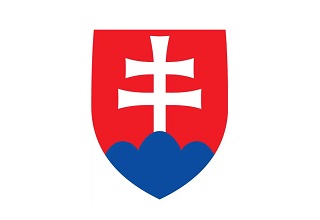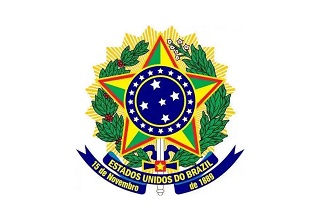Regarding the Inspection and Quarantine Requirements for Chia Seed from Bolivia to China
I. Inspection and quarantine basis
(1) "China Biosafety Law";
(2) "China Entry and Exit Animal and Plant Quarantine Law" and its implementing regulations;
(3) "China Food Safety Law" and its implementing regulations;
(4) "China Import and Export Commodity Inspection Law" and its implementing regulations;
(5) "Inbound and Outbound Grain Inspection and Quarantine Supervision and Management Measures";
(6) "China Import and Export Food Safety Management Measures";
(7) "Protocol on Plant Quarantine Requirements for Chia Seeds Exported to China between China Customs and the Ministry of Rural Development and Land of Bolivia".
II. Names of commodities allowed to enter the country
Chia Seed refers to Salvia hispanica L. seeds grown and processed in Bolivia, which are made through secondary cleaning, drying, screening, magnetic cleaning, metal detection and other processes.
III. Permitted origin
The whole territory of Bolivia.
IV. Enterprise Registration
Chia seed processing enterprises exported to China shall be registered with the Chinese Customs. The Bolivian National Agricultural Health and Food Safety Agency shall provide the Chinese Customs with a list of relevant enterprises in advance. After inspection or review by the Chinese Customs, the enterprises will be registered and the list of relevant enterprises will be published on the GACC website.
V. Quarantine Pests
Chia seeds exported to China shall not carry the following quarantine pests of concern to the Chinese Customs:
1. Ambrosia artemisiifolia
2. Cenchrus echinatus
3. Cuscuta spp.
4. Sorghum halepense
VI. Pre-shipment requirements
(I) Production requirements
1. The Bolivian National Agricultural Health and Food Safety Agency shall adopt internationally recognized investigation and monitoring methods to conduct epidemic investigation and monitoring of quarantine pests of concern to China Customs during the growth and storage period of Chia, and submit monitoring reports on the occurrence of the above-mentioned pests in the production area according to the needs of China Customs, including monitoring methods and results, as well as other information required by China Customs.
2. The Bolivian National Agricultural Health and Food Safety Agency shall supervise planting enterprises to establish an integrated pest management system (IPM), implement effective field pest control measures, and reduce the occurrence of pests of concern to China Customs. In the pest control work, pesticides prohibited by China Customs shall not be used.
3. During the production and processing of chia seeds exported to China, screening and other cleaning measures shall be taken, and soil, plant residues, impurities and dangerous, toxic and harmful weed seeds shall not be carried.
4. Chia seeds exported to China shall be effectively dried before export, dried in a closed drying equipment, at a temperature above 65°C, and heated for at least 10 hours.
(II) Packaging and transportation requirements
1. Chia seeds exported to China must be packaged with clean, unused materials that do not contain toxic or hazardous substances. Each package should have at least one label indicating the company name, registration number, and "从玻利维亚出口到中华人民共和国的奇亚籽""CHIA SEED FROM BOLIVIA TO BE EXPORTED TO THE PEOPLE'S REPUBLIC OF CHINA" in Chinese and English.
2. Containers for shipping chia seeds must be clean.
(III) Pre-export inspection and quarantine and certificate requirements.
1. Before export, the Bolivian National Agricultural Health and Food Safety Agency must conduct inspection and quarantine on chia seeds exported to China, issue a plant quarantine certificate for those that meet the requirements, and indicate "This consignment complies with the requirements described in the Protocol of Phytosanitary Requirements for the Export of Chia Seeds from BOLIVIA to China and is free from quarantine pests concerned to China." in the additional statement, and indicate the company name, registration number and container number of this batch of goods.
2. After the goods are loaded into the container, they should be sealed, and the seal number must be indicated in the plant quarantine certificate. The packaging must not be opened or replaced during transportation.
VII. Entry inspection and quarantine
(I) Certificate verification.
1. Verify whether it comes from a registered company;
2. Verify whether the attached plant quarantine certificate is authentic and valid.
(II) Goods inspection and supervision.
1. According to relevant laws, administrative regulations, rules and regulations, and in combination with the requirements of this announcement, chia seeds shall be inspected and quarantined, and entry shall be allowed after passing the inspection;
2. Chia seeds exported to China shall be inspected and quarantined at the supervision sites designated by the Chinese Customs.
(III) Handling of non-compliance.
1. If there is no valid plant quarantine certificate, it shall be returned or destroyed;
2. If it comes from an unregistered processing enterprise, it shall be returned or destroyed;
3. If soil is found, it shall be returned or destroyed;
4. If quarantine pests of concern to the Chinese Customs listed in this announcement are intercepted, the relevant goods shall be allowed to enter the country after passing the effective quarantine treatment. If quarantine treatment cannot be implemented, it shall be returned or destroyed;
5. If pests other than those listed in this announcement are intercepted, they shall be handled in accordance with the relevant provisions of the "Law of China on Entry and Exit Animal and Plant Quarantine" and its implementing regulations;
6. If other situations that do not meet the requirements of China's entry inspection and quarantine are found, they will be handled in accordance with relevant laws and regulations. If the above-mentioned violations are found, China Customs will notify the Bolivian National Agricultural Health and Food Safety Bureau and, depending on the severity of the violations, suspend the export of relevant registered enterprises or even suspend the export of Bolivian chia seeds to China until the Bolivian National Agricultural Health and Food Safety Bureau takes effective improvement measures.
GACC
Jan. 10, 2025




